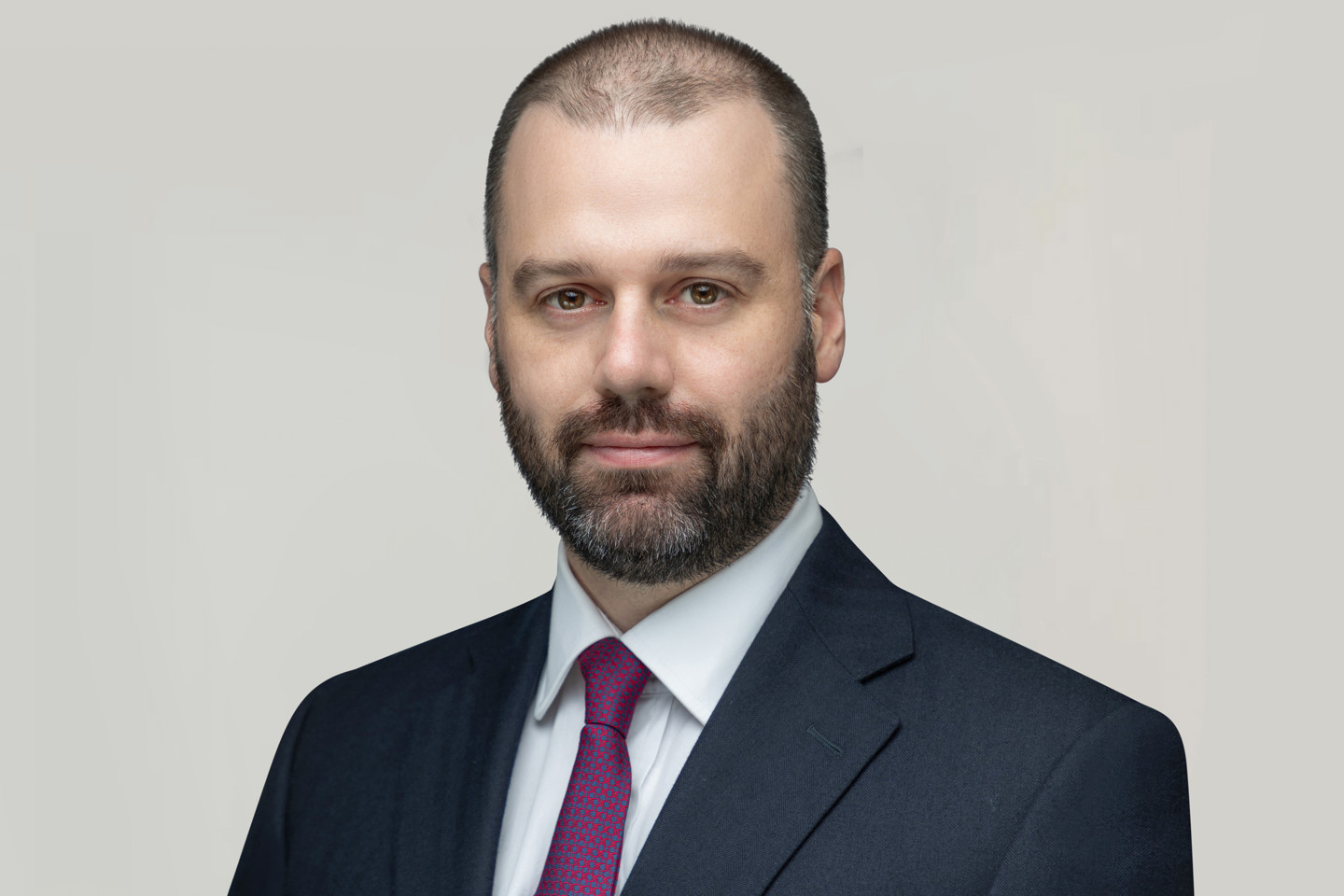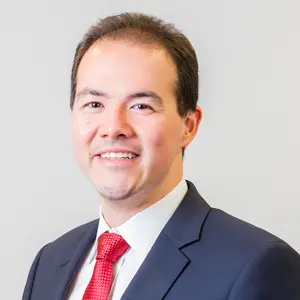
Mathew Newman
Partner | Legal
Guernsey

Mathew Newman
Partner
Guernsey
Services
We have the expertise to handle the most demanding transactions. Our commercial understanding and experience of working with leading financial institutions, professional advisers and regulatory bodies means we add real value to clients’ businesses.
Sectors
Our sector approach relies on smart collaboration between teams who have a deep understanding of related businesses and industry dynamics. The specific combination of our highly informed experts helps our clients to see around corners.
We have the expertise to handle the most demanding transactions. Our commercial understanding and experience of working with leading financial institutions, professional advisers and regulatory bodies means we add real value to clients’ businesses.
Legal
Corporate and Fiduciary
Consulting
Banking and Finance
Corporate
Dispute Resolution
Employment law
Intellectual Property
Investment Funds
Listing services
Local Legal Services
Ogier Regulatory Consulting
Our sector approach relies on smart collaboration between teams who have a deep understanding of related businesses and industry dynamics. The specific combination of our highly informed experts helps our clients to see around corners.
Ogier provides practical advice on BVI, Cayman Islands, Guernsey, Irish, Jersey and Luxembourg law through our global network of offices across the Asian, Caribbean and European timezones. Ogier is the only firm to advise on this unique combination of laws.
Keep up to date with industry insights, analysis and reviews. Find out about the work of our expert teams and subscribe to receive our newsletters straight to your inbox.
Fresh thinking, sharper opinion.
We get straight to the point, managing complexity to get to the essentials. Our global network of offices covers every time zone.
About us
Corporate social responsibility (CSR)
Diversity, equity and inclusion
Information security
Innovation
Sustainability
No Content Set
Exception:
Website.Models.ViewModels.Components.General.Banners.BannerComponentVm
Newsletter
22 November 2022
Global
4 min read
ON THIS PAGE
RELATED
In a turbulent economic climate, we're continuing to see an increase in both contentious and non-contentious insolvencies.
As a result of this rising tide, there will continue to be new insolvency cases.
Although the case's origins pre-date the current high inflation economic environment, the UK Supreme Court's judgment in BTI v Sequana will be especially influential in our current circumstances.
The case considers whether the duty to act in the best interests of the company requires directors to consider and act in the interests of the company's creditors, rather than the shareholders, only when the company becomes insolvent, or whether directors should do this before insolvency.
While decisions of the UK Supreme Court aren't binding in the jurisdictions in which we practise law, it will nevertheless be highly persuasive and influence the approach taken in the offshore jurisdictions we operate in. You can read our team's briefing on it below.
Enjoy Latitude, and if you wish to discuss any of the issues raised please get in touch with our team.
Reports of the significant increase in corporate insolvencies and voluntary liquidations in England and Wales for Q2 demonstrate the combined impact of government Covid-19 support being withdrawn, soaring energy and fuel costs, and weakening demand – and are being reflected in the nature of the instructions coming into our global jurisdictions from distressed companies across the globe. Continue reading ...
Although the principle was only named in the early 2000s, modified universalism has been the "golden thread" running through cross-border insolvency law since the 18th century. The UNCITRAL Model Law on Cross-Border Insolvency provides a tried and tested framework for cross-border cooperation and assistance that is founded on the principles of modified universalism. However, in jurisdictions where the Model Law has not been adopted, including many offshore jurisdictions, it is critical to ensure that the common law principles of modified universalism retain their primacy and potency, and are not inadvertently eroded to the detriment of stakeholders. Continue reading ...
In a recent decision, the Grand Court of the Cayman Islands grappled with the question of whether the need for an investigation into the affairs of the company is a stand-alone ground for winding up. While the Court did not determine the question conclusively, it did provide an indication of how it may rule if the issue were to be placed squarely before the Court again. Continue reading ...
The approach of the Cayman Grand Court to the terms and timing of the discharge of provisional liquidators of In the Matter of Star International Drilling Ltd (unreported, FSD 88 of 2021 ASCJ) may provide a window into what is expected to be a similarly flexible approach to the appointment of restructuring officers. Continue reading ...
By virtue of the special nature of Cayman Islands segregated portfolio companies, where one portfolio of the company is in financial distress but the others (and their investors) remain unaffected, the Cayman Islands Companies Act (2022 Revision) provides for the appointment of a receiver to the relevant portfolio, without needing to wind up the company in its entirety. To engage the Court's jurisdiction to make a receivership order over a segregated portfolio, it must be "insolvent" within the meaning of 224(1) of the Companies Act. This raises the question: what's the appropriate test for insolvency to be applied by the Court? Continue reading ...
The Cayman Islands insolvency and restructuring industry is welcoming the introduction of the much-anticipated reforms to the jurisdiction's restructuring regime. These came into force on 31 August 2022. The reforms, which were originally published in 2021, will facilitate the efficient restructuring of distressed companies for the benefit of their stakeholders by, among other things:
The UK Supreme Court handed down its decision in BTI v Sequana on 5 October 2022, unanimously dismissing the appeal from the 2019 Court of Appeal decision and confirming how directors duties ought to be applied when a company is in the zone of insolvency. Although decisions of the UK Supreme Court are not binding upon the jurisdictions in which Ogier practises law, it will nevertheless be highly persuasive and influence the approach taken in the offshore jurisdictions that Ogier advises upon. Continue reading ...
Historically, Guernsey's insolvency law had limited operational provisions (compared to English law) and was largely developed by a bespoke and flexible application of common and customary law principles by the Royal Court. The old regime will now be updated and revised by the Companies (Guernsey) Law, 2008 (Insolvency) (Amendment) Ordinance 2020 which was passed on 15 January 2020. Although it does not yet have force of law it is anticipated to become law in the latter part of this year. Continue reading ...
The Irish Minister for Enterprise, Trade and Employment signed into law the European Union (Preventive Restructuring) Regulations 2022 on 29 July 2022. This is the first significant piece of legislation dealing with corporate rescue in Ireland since 1990, when the jurisdiction's examinership process was first codified. In this article, we will outline some of the more material changes the Regulations make to Ireland's existing legislation. Continue reading ...
On 11 November 2022, the Grand Court of the Cayman Islands heard the first petition to appoint restructuring officers under the new Cayman Islands restructuring regime that came into force on 31 August 2022. In this article, we will provide an overview of the recent hearing and the appointment. As this was the first time the Grand Court of the Cayman Islands was required to determine a petition to appoint restructuring officers, some useful points were clarified and practical recommendations offered. Continue reading ...

Partner | Legal
Guernsey

Mathew Newman
Partner
Guernsey

Partner | Legal
British Virgin Islands

Christian Burns-Di Lauro
Partner
British Virgin Islands

Partner | Legal
British Virgin Islands, Jersey

Brian Lacy
Partner
British Virgin Islands, Jersey

Partner | Legal
Dubai

David Welford
Partner
Dubai

Partner | Legal
Cayman Islands

Jennifer Fox
Partner
Cayman Islands

Partner | Legal
Cayman Islands

Marc Kish
Partner
Cayman Islands

Partner | Legal
Cayman Islands

Gemma Bellfield (nee Lardner)
Partner
Cayman Islands

Partner | Legal
Cayman Islands

Christopher Levers
Partner
Cayman Islands

Managing Associate | Legal
Cayman Islands

Nour Khaleq
Managing Associate
Cayman Islands

Senior Associate | Legal
Cayman Islands

Victoria King
Senior Associate
Cayman Islands

Managing Associate | Legal
Cayman Islands

Farrah Sbaiti
Managing Associate
Cayman Islands

Senior Associate | Legal
Cayman Islands

Max Galt
Senior Associate
Cayman Islands

Partner | Legal
Guernsey

Alex Horsbrugh-Porter
Partner
Guernsey

Partner | Legal
Guernsey

Paul Chanter
Partner
Guernsey

Managing Associate | Legal
Guernsey

Michael Rogers
Managing Associate
Guernsey

Partner, 合伙人 | Legal
Hong Kong

Anthony Oakes 敖安德
Partner, 合伙人
Hong Kong

Partner 合伙人 | Legal
Hong Kong

Oliver Payne 彭奥礼
Partner 合伙人
Hong Kong

Partner | Legal
Ireland

Ronan McGoldrick
Partner
Ireland

Partner | Legal
Ireland

Stephen O'Connor
Partner
Ireland

Senior Associate | Legal
Ireland

Dee Murphy
Senior Associate
Ireland

Partner | Legal
Jersey

James Angus
Partner
Jersey

Partner | Legal
Guernsey

Christopher Jones
Partner
Guernsey

Partner | Legal
Jersey

Bruce MacNeil
Partner
Jersey

Partner | Legal
Jersey

Oliver Passmore
Partner
Jersey

Partner | Legal
Jersey

Nick Williams
Partner
Jersey

Partner | Legal
London, Cayman Islands, British Virgin Islands

Jeremy Snead
Partner
London, Cayman Islands, British Virgin Islands
Sign up to receive updates and newsletters from us.
Sign up
No Content Set
Exception:
Website.Models.ViewModels.Blocks.SiteBlocks.CookiePolicySiteBlockVm
